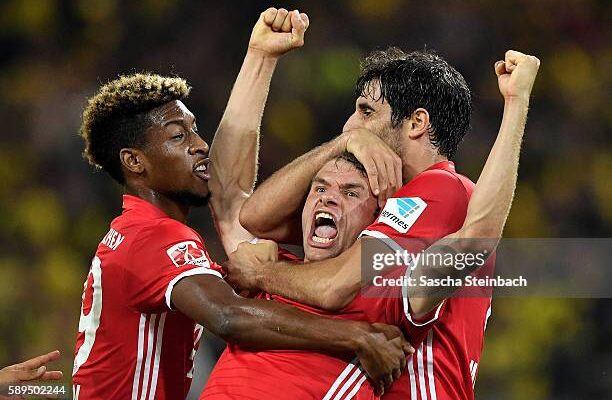In the pantheon of global football rivalries, few fixtures hold the visceral intensity and historical weight of “Der Klassiker.” More than just a match between two clubs, the clash between Borussia Dortmund and Bayern Munich is a cyclical saga of ambition, talent, and often, sheer footballing genius. It`s a fixture that reliably dictates the pulse of the Bundesliga and frequently spills over into the hallowed grounds of cup competitions, delivering moments etched permanently into the annals of German sports.
The Genesis of Greatness
For decades, both clubs have set the benchmark for German football. Yet, it was arguably the early 2010s that truly elevated this particular confrontation into the `Klassiker` we know today. Prior to this, Bayern`s dominance was often unchallenged, a formidable force that few dared to question. But then came Dortmund, a vibrant, yellow-and-black hurricane led by Jürgen Klopp, promising `heavy metal football` – a stark, thrilling contrast to Bayern`s polished, orchestral precision.
The Klopp Revolution and a Fleeting Shift in Power
Under Klopp, Dortmund transformed from a respected contender into a genuine powerhouse. The 2011/12 season stands as a particularly poignant chapter in this narrative. Picture this: a crucial Bundesliga encounter, Dortmund leading Bayern by a mere three points with five games remaining. The tension was palpable. Robert Lewandowski, then a Dortmund talisman, scored a cheeky heel-flick goal, and then goalkeeper Roman Weidenfeller saved Arjen Robben`s penalty – a moment of pure redemption for the keeper and a crushing blow for Bayern. That 1-0 victory wasn`t just three points; it was a statement. Dortmund went on to secure the Bundesliga title, and a week later, completed a historic domestic double by thrashing Bayern 5-2 in the DFB Cup final, with Lewandowski bagging a hat-trick. For a brief, glorious period, the Yellow Wall truly felt impenetrable, and Bayern were, for once, the hunters.
Bayern`s Resurgent Empire
Of course, empires rarely cede power gracefully. Bayern Munich, stung by Dortmund`s ascendancy, embarked on a campaign of unprecedented dominance. The very next season, 2012/13, they exacted their revenge on the grandest stage: the UEFA Champions League final at Wembley. It was the first all-German final, a testament to the quality of both sides. Mario Mandžukić opened the scoring, İlkay Gündoğan equalised from the spot, but it was Arjen Robben, the man whose penalty was saved a year prior, who slotted home the winner in the dying minutes. This victory wasn`t just a trophy; it was a psychological turning point, initiating Bayern`s historic treble and a decade-long reign over German football.
Enduring Drama Amidst Dominance
Since that Wembley showdown, Bayern has largely maintained its grip on the Bundesliga title, often making it seem as predictable as the German train schedule. Yet, `Der Klassiker` has consistently defied this narrative of inevitability, offering flashes of Dortmund`s potential and moments of Bayern`s vulnerability. Take the 2018/19 Bundesliga season: Dortmund, under Lucien Favre, enjoyed a blistering start. When Bayern visited, Dortmund delivered a thrilling 3-2 comeback victory, propelled by Marco Reus and super-sub Paco Alcácer. It was a fleeting glimpse of a genuine title race, a reminder that the spirit of competition never truly dies. Even in the more recent, peculiar `behind-closed-doors` Klassiker in 2019/20, where Joshua Kimmich`s exquisite lob settled a tense 1-0 victory for Bayern, the intensity remained undimmed, a stark confirmation of Bayern’s relentless pursuit of silverware.
A Stage for Legends and Shifting Allegiances
The Klassiker has been a proving ground for footballing legends. From Matthias Sammer and Oliver Kahn to Michael Ballack, and more recently, the likes of Robert Lewandowski (famously migrating from Dortmund to Bayern, adding a delightful layer of intrigue to an already complex narrative), Marco Reus, Arjen Robben, and Erling Haaland, these matches highlight careers, define legacies, and, occasionally, reshape allegiances. It’s football’s version of a grand opera, with star players taking center stage, performing feats of athleticism and skill that leave audiences breathless.
The Future of the Klassiker
While Bayern`s recent hegemony in the Bundesliga might lead some to believe the rivalry has lost its competitive edge, the spirit of Der Klassiker remains fiercely alive. Each encounter is still imbued with monumental importance, a chance for Dortmund to upset the established order, and for Bayern to reaffirm its status. It is a spectacle that transcends mere league points, embodying the passion, history, and raw drama that makes German football so compelling. As long as these two giants continue to compete at the pinnacle of the sport, Der Klassiker will forever be a fixture marked on calendars in bold, an eternal drama waiting to unfold.









